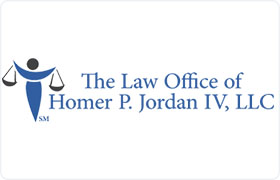Douglas County, GA Adoption Lawyers
Sponsored Law Firm
-
 x
x

Click For More Info:
-
The Law Office of Homer P. Jordan IV, LLC
125 Townpark Drive Suite 300 Kennesaw, GA 30144» view mapDivorce & Family Law Legal Solutions for a Brighter Tomorrow
At The Law Office of Homer P. Jordan IV, LLC in Kennesaw, we are dedicated to helping clients throughout the Atlanta area, including Cobb, Cherokee and Paulding counties.
800-590-3350
John W. Sherrod
Alimony & Spousal Support, Adoption, Criminal, Corporate
Status: In Good Standing Licensed: 37 Years
Kenneth R. Bernard
Alimony & Spousal Support, Adoption, Corporate, Business Organization
Status: In Good Standing Licensed: 35 Years
 Homer Jordan Kennesaw, GA
Homer Jordan Kennesaw, GA AboutThe Law Office of Homer P. Jordan IV, LLC
AboutThe Law Office of Homer P. Jordan IV, LLC Practice AreasExpertise
Practice AreasExpertise
